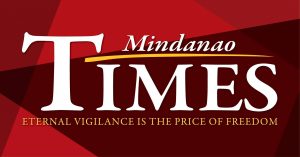 LAWMAKERS on Tuesday approved on third and final reading the ordinance institutionalizing the COVID-19 immunization program for the city.
LAWMAKERS on Tuesday approved on third and final reading the ordinance institutionalizing the COVID-19 immunization program for the city.
Councilor Mary Joselle Villafuerte, the committee of health chairperson, bared this on Facebook, saying, “Thank you colleagues, VM Baste, Mayor Sara and members of the COVID-19 Task Force, DOH 11 and CHO for the guidance and support.”
She authored the “An Ordinance For The Implementation of the COVID-19 Immunization Program of Davao City,” citing the need for an enabling law to cater to the specific needs of Davaoeños.
The ordinance covers all residents of Davao City and non-residents found to be within the territorial jurisdiction of the city during the effectivity of the program.
However, the age, gender, and other requirements shall be based on the guidelines set by the national government, through the Department of Health (DOH), Inter-Agency Task Force in the Management of Emerging Diseases (IATF), and the National Task Force Against COVID-19 (NTF).
A full assessment of the COVID-19 situation in the city will have to be conducted before the finalization of vaccine procurement, distribution, and administration plan to better implement the ordinance.
The Ordinance also mandates the formulation of a community-based COVID-19 immunization plan by the City Health Office (CHO) along with the DOH Center for Health Development-Davao.
The framework will have barangays and other community subsets as active partners in program execution to ensure thorough immunization coverage of persons, adequate and equitable access to the vaccine, and proper post-immunization attention and monitoring.
Other agencies and the private sector are also enjoined to closely coordinate with the city government of Davao in the program’s implementation.
The CHO, being the lead agency of the COVID-19 immunization program, is mandated by the Ordinance to train health workers for vaccine handling, storage, and administration.
The Barangay Health Emergency Response Teams (BHERTs) and community leaders shall actively assist the CHO in implementing the program.
Meanwhile, the COVID-19 Electronic Immunization Registry (CEIR) shall be the official platform for master listing and registration for COVID-19 vaccination.
All health facilities in the city must submit their master lists through the CEIR, which the CHO will consolidate to prevent duplication. An immunization card, which will reflect the date of immunization, immunization round/dose received, among other details, will be given to each person vaccinated under the Ordinance.
Sec. 8 of the Ordinance also states that only vaccines with emergency use approval (UEA) and/or certificate of product registration (CPR) issued by the Philippine Food and Drug Administration (FDA) shall be selected and procured for the program.
The Priority Eligible Group A includes frontline health workers, indigent senior citizens, remaining senior citizens, remaining indigent population, and uniformed personnel (AFP, PNP, PCG, BFP, CAFGU). The COVID-19 vaccination will be held in phases, depending on the delivery of vaccines in the country, and the deployment will be based on a sectoral approach within each priority group.
The guidelines of the Philippine National Deployment and Vaccination Plan for COVID-19 vaccines shall be followed:
Priority Eligible Group A – frontline health workers, indigent senior citizens, remaining senior citizens, remaining indigent population, and uniformed personnel (AFP, PNP, PCG, BFP, CAFGU);
Priority Eligible Group B – all teachers and school workers, all government workers, essential workers, socio-demographic groups (PDLs, PWDs, IPs, Filipinos living in high-density areas), eligible students (primary, secondary, tertiary, and vocational), Filipino migrant workers, and all remaining Filipino workforce as determined by DOLE, DTI, and the Civil Service Commission;
Priority Eligible Group C – all Filipino citizens not mentioned in Groups A and B.
The immunization program will run until at least 70 to 85 percent of the city’s population are immunized to achieve herd immunity.
Exempted from the city’s COVID-19 immunization program are those declared by a medical professional to have any allergies or found to exhibit adverse reactions to vaccines; those with prevailing medical conditions and advised to refrain from immunization; those covered by contraindication clauses made by vaccine manufacturers and suppliers of the respective vaccines; those who object based on religious and cultural grounds; those exempted as provided for by other laws or statutes; those who object based on philosophical grounds, those who choose not to be immunized; and those who have availed of or plan to avail of COVID-19 immunization through other means.
Parents and legal guardians of minors and other persons of legal age who will not avail or those who will refuse the immunization will not be penalized.
Prohibited under the ordinance are the importation, use, distribution, and administration of any unregistered or unapproved COVID-19 vaccines; administration of any COVID-19 vaccine by any untrained or unauthorized individual; commercial sale and distribution of vaccines granted EUA; giving/administration of COVID-19 vaccines outside the identified priority groups and manufacturer recommendations. Any violation of these prohibitions shall be punishable by imprisonment of not less than six months to one year or a fine of P5,000 or both at the discretion of the court.
On the other hand, the Ordinance also mandates the creation of the COVID-19 Immunization Program Task Force and Local Vaccination Operations Center and Local Adverse Events Following Immunization (AEFI) Committee Specific to COVID-19 Immunization.
The Ordinance also calls on a massive and simultaneous and coordinated education and information campaign from the public and private sectors, including mass media, civil society groups, religious and cultural organizations, among others.
The city government shall allocate funds for the implementation of the program as mandated by the ordinance.
